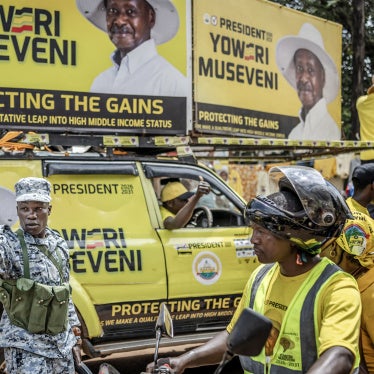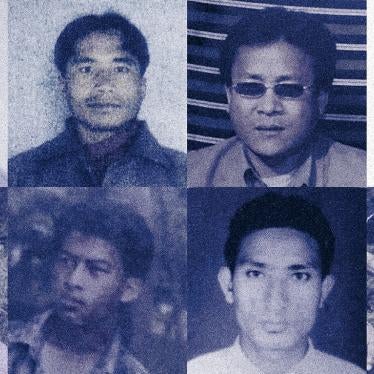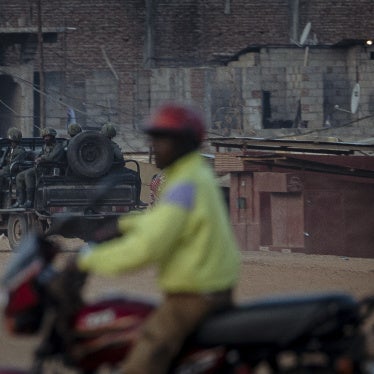(Nairobi) – Kenyan authorities failed to investigate adequately a spate of organized gang attacks on western villages during and after the March 2013 elections, Human Rights Watch said in a report released today. The authorities should reopen investigations into the attacks in Busia and Bungoma counties and prosecute those responsible for carrying out and supporting the attacks.
The 33-page report, “‘We Were Sent to Kill You’: Gang Attacks in Western Kenya and the Government’s Failed Response,” based on Human Rights Watch research in the two counties, documents the little-reported attacks on nine villages in Busia and Bungoma counties by criminal gangs of armed young men from March to July 2013. The attackers, using machetes, clubs, and axes, killed a total of 10 people and seriously injured more than 150.
“Police utterly failed to effectively investigate the violence in Busia and Bungoma counties” said Leslie Lefkow, deputy Africa director. “The police didn’t collect critical evidence, and completely ignored evidence that gangs carried out these crimes during and after the 2013 elections with support from political figures.”
The government should expedite reforms in the police service, including bolstering its investigative capacity. It should provide the service with adequate resources to deal with gang activity and political violence in various parts of the country.
Human Rights Watch interviewed 87 people, including victims, government officials, police, politicians, witnesses, and activists. Despite an initial strong response from the national government, police did not adequately investigate the attacks. The attacks appeared to be organized. In some incidents, the attackers demanded money and mobile phone handsets from victims, but theft did not appear to be their primary motive.
A woman who survived an attack at the Makutano area in the town of Bungoma said: “As one of them was hitting me, two of the gang members went for my husband. They started hitting him. After some time, I saw my husband lying down. Our children later told me that they saw one of the gang members grab an axe from another gang member and hack their father to death.”
In some cases attackers told victims they had “voted badly,” suggesting a political motivation. However, victims said they had supported various parties in the election and much remains unclear about possible political links. Some of the people interviewed alleged that local business owners and political figures had provided support to the gangs who carried out the attacks.
The Kenyan government in 2010 enacted the Prevention of Organized Crimes Act, aimed at providing the police with the legal foundation for dealing with gangs. In Bungoma and Busia, however, police did not enforce the act. They apparently did not even take statements from witnesses or visit crime scenes.
The intensity of widespread violence that followed the country’s December 2007 elections was attributed to the prevalence of gangs that could easily be hired or were financed by politicians. Kenyan authorities pledged to take measures to end gang activity before the 2013 elections and passed the 2010 law.
However, despite the law, the authorities have not investigated or prosecuted gangs adequately. A report released by the attorney general in August 2013 found that the number of gangs nationally had grown from 33 in 2010 to 46. The report does not mention the gangs in Busia and Bungoma.
“The fact that the number of gangs is growing is a worrying trend,” Lefkow said. “Kenyan authorities urgently need to tackle the problem of gang violence, and they should start by investigating the attacks in Busia and Bungoma.”








